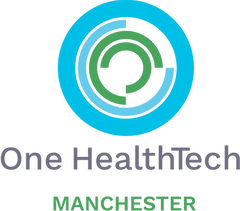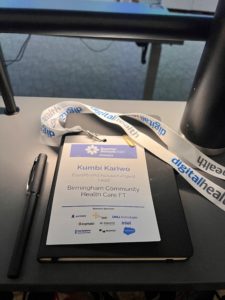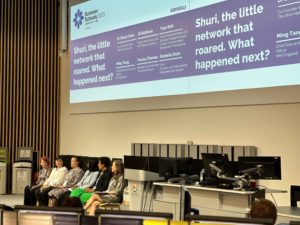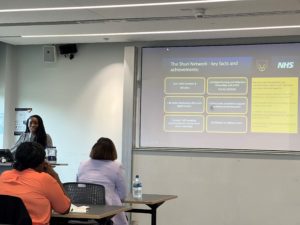As part of a commitment to continue collaboration and growth within the community of female digital leaders, the Shuri Network and Health Innovation West Midlands hosted a networking workshop for previous Shuri Network bursary holders in February 2024. The collaboration aimed to create a dynamic platform where women in digital leadership roles, especially in the healthcare sector, could come together to exchange insights, engage in enriching discussions, and foster a community of practice.
The event emphasised the importance of empowering women in the digital age and provided a supportive environment for sharing stories, experiences, and expertise. Participants were encouraged to get to know their peers through networking and understanding the diverse backgrounds of those in attendance. The programme focused on the importance of diversity and intersectionality in digital leadership, providing key insights into challenges faced and opportunities for women in the field, and engaged participants in real stories from female leaders in the digital space.
To ensure a tangible outcome to the event, all participants were introduced to the concept of communities of practice and invited to provide their thoughts on potential topics and themes for a community of practice for women in digital leadership, and how to prioritise these suggestions. Having participants actively contribute to the formation of a community of practice continues to drive positive change for women in digital.
To get involved in the work surrounding women in digital leadership or the community of practice, please contact Reena Sidhu, Commercial Enterprise Lead – Digital Innovation, Health Innovation West Midlands: reena.sidhu@healthinnovationwm.org



 In a presentation at the latest Digital Health Networks Exchange event in London, ‘Unlocking digital maturity in healthcare – levelling up for success’, Will Goodwin, assistant director of programmes – digital capability at NHS England, presented the findings from the inaugural year of the DMA programme.
In a presentation at the latest Digital Health Networks Exchange event in London, ‘Unlocking digital maturity in healthcare – levelling up for success’, Will Goodwin, assistant director of programmes – digital capability at NHS England, presented the findings from the inaugural year of the DMA programme. The session on “ICS Digital Priorities Unveiled: Shaping the Future of the NHS”, focused on shared care records and wider issues associated with the digital maturity agenda.
The session on “ICS Digital Priorities Unveiled: Shaping the Future of the NHS”, focused on shared care records and wider issues associated with the digital maturity agenda.  Digital Health Summer Schools
Digital Health Summer Schools 





